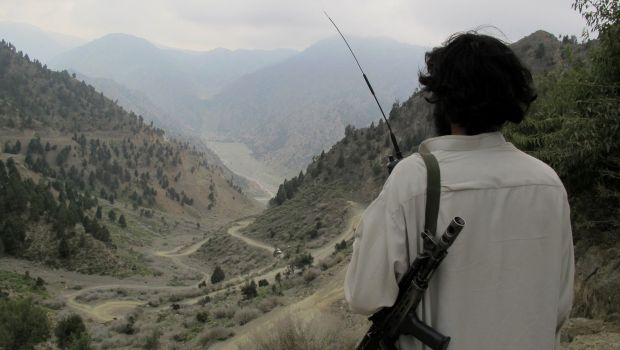Kabul-When Abdul Basir, an Afghan government militia commander, and his son Said Muhammad, who had been a Taliban fighter, made peace last month, after several attempts to kill each other, it was clear their story would not end there.
For two lives so entirely shaped by decades of violence, the ending could not be a happy one. The truce simply meant father and son had both agreed to turn their weapons against the Taliban.
On Wednesday, Mr. Basir and Mr. Muhammad, along with 10 of their fighters, were lured into an insurgent trap near their home in the Qaisar District of Faryab Province, in northern Afghanistan. After hours of siege, the Taliban killed Mr. Basir and five of his men. Mr. Muhammad barely escaped.
“The Taliban tied their bodies to tanks and dragged them for about 10 kilometers,” said Abdul Baqi Hashemi, a member of the Faryab provincial council who has ties to the family.
With the help of local elders, the bodies were finally brought to the Qaisar District center, where Mr. Basir had made a home after the Taliban pushed him and his family from their native village, Zyaratgah. Mr. Basir had sustained seven bullet wounds, including one that had entered from the back of his head, Mr. Muhammad said.
About 2,000 men lined up for the final prayer before Mr. Basir was buried in a cemetery at 11:30 a.m. on Thursday, according to Nizamuddin Qaisari, the district police chief who participated and provided security.
Mr. Hashemi, however, said dozens of relatives who came from Zyaratgah left before the prayer and the burial, after the Taliban sent a warning that those who participated in the funeral would not be allowed back into the village.
Mr. Muhammad, who had declared his father an infidel when he was a member of the Taliban, now vowed to avenge his father’s death and continue the violence against his old comrades.
“I wish I was killed and not my father — the Taliban really feared him,” Mr. Muhammad said in a telephone interview. “I will take revenge for his death. I will not stop until I have brought their heads to the bazaar in Qaisar.”
But Mr. Qaisari, the police chief, made it clear that this story with so many twists and turns could have more. “After the weekend, there will be an investigation to see whether his son had any involvement in his killing,” he said.
For decades, Mr. Basir had lived as a fighter and then commander for the militia of Gen. Abdul Rashid Dostum, who is now the vice president of Afghanistan.
Since the 1990s, his main enemy had been Mawlawi Hafiz, who served as a Taliban commander in Faryab. After the invasion by United States forces, both men briefly turned to civilian lives, only to be at each other’s throats again.
Mr. Hafiz, who had remained in Qaisar as a village preacher after the fall of the Taliban, managed to indoctrinate Mr. Basir’s son, turn him into a Taliban fighter, and send him on a mission to kill his father.
After years of fighting each other, father and son made peace last month over a goat sacrifice and quickly got busy fighting on the same side.
In the interview on Thursday, Mr. Muhammad said that he was busy collecting ushr from villagers — what militia commanders as well as Taliban say is an Islamic tax, but villagers see as extortion — when he got a call on Wednesday morning warning that the Taliban were about to attack.
Mr. Muhammad described hours of intense siege, 12 militia fighters against the Taliban’s 500. He and his father were fighting in the same area, but in separate groups of six men and a bit apart. Only a wall separated him and the Taliban, he said, describing his own escape in heroic color that involved much crawling and tossing grenades.
Mr. Qaisari, the police chief, does not seem to buy his story. He said there were 100 Taliban, not 500, and that Mr. Basir was lured into a trap. He had gone on a mission without informing his superiors.
Mr. Hashemi, the provincial council member, said Mr. Basir’s demise was foretold. He enjoyed the rush of fighting battles in which he was outnumbered, and sneaking into the enemy line on guerrilla raids that he would later boast about.
“His son is now saying ‘I will take revenge.’ That is not something that he can do on his own,” Mr. Hashemi said. “He may kill one or two Taliban, and they may kill one or two on the government side. But I see him meeting the same fate as his father.”
The New York Times
